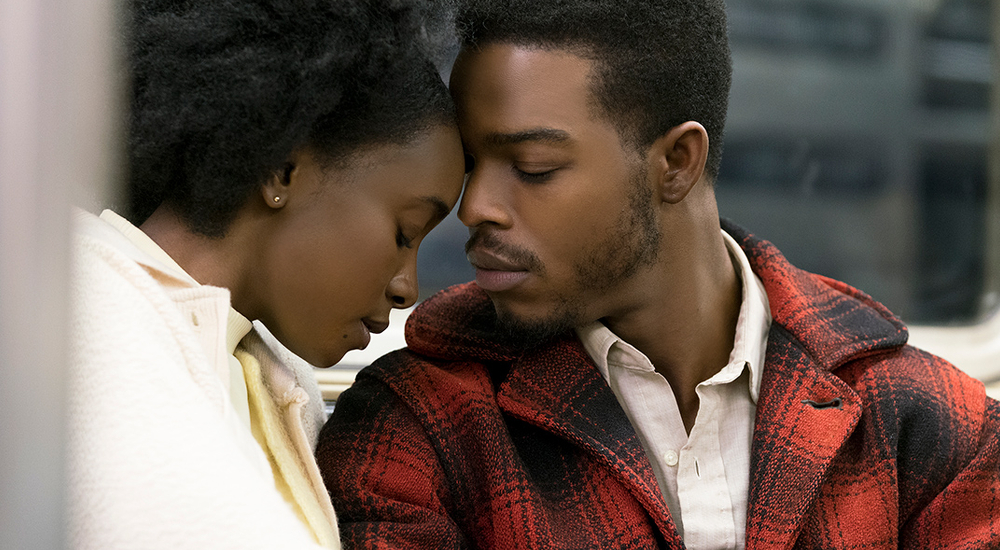“You just want to hear me say it.”
A pregnant teenager high on her future and an expecting father isolated behind bars for a crime that he did not commit. These two characters, brought together once by love and ripped apart by racial discrimination and fear, are at the center of Barry Jenkins' beautifully captured If Beale Street Could Talk.
Located in Memphis, Tennessee and harboring a substantial amount of history, Beale Street is an iconic landmark within the African American community. Though Jenkins’ film, impeccably adapted from James Baldwin’s painfully moving novel of the same name, takes place in Harlem, the title lends itself to a culture, foreshadowing that its story contains an impactful message.
The film opens with a long, overhead shot of two enriching people, 19-year-old Tish, our narrator, and 22-year-old Fonny. The night proves to be the one where they took their lifelong friendship to the next level, deciding to become lovers. It’s a magic-in-the-moonlight moment that Jenkins all but trademarked as a metaphorical representation of self-discovery with 2016’s Moonlight. It’s a shot of pure beauty, capturing the essence of young love and the adrenaline and excitement that often comes with it. However, the romance doesn't last as we realize this is a flashback. In reality, Tish is pregnant while Fonny sits in a jail cell, accused of raping a woman across town.
It is here that we realize If Beale Street Could Talk is not a romance. It's hardly a love story. Granted there is an aroma of sex and longing in the air, the story itself is far more focused on the hardships and heartbreak that come at the hands of fear.
Jenkins wastes no time putting his stylistic hand at the heart of the story. With him, loss is always a given as he feeds off the raw emotion that comes with grief and despair, But unlike his previous two films, Beale Street possesses a unique sense of self-awareness. Jumping back and forth between a time of love and one of suffering the Oscar winner works to distinguish between the before and after.
Prior to the arrest Tish and Fonny spoke of love and affection, a bright future and a life filled with happiness and a house filled with family. Afterward, with Fonny awaiting trial and Tish refusing to leave his side, the two struggle to stay positive, looking down the barrel of a metaphorical gun without a penny to throw into a wishing well for good measure.
The emotional pull, told through a simple, albeit devastating story, is enormous. Tears fill your eyes as you witness two hearts slowly breaking, and a family who is forced to sit on the sideline: Tish’s father longs to help and her mother begs for comfort. Unfortunately, there is nothing to do - it is 1970s Harlem where fear and hate run rapid, and no one appears to want to listen to a black man who pledges his innocence over a cop who bears an internal need to settle a score.
Jenkins instills his less is more mentality by having his characters accomplish more through actions than dialogue, a feat that serves the film and its characters well. The rich and warm color palette is a creative choice given the film’s overall theme, but the contrast adds a tier of complexity to the already heavily layered story. This, in large part, is what allows Beale Street to work as well as it does. Nothing is quite as it seems, and Jenkins never allows his characters to settle into a state of anger or self-defeat - they are above that.
If Beale Street Could Talk is a heartbreaking story told by one of the best storytellers in the business. However, more than this story itself, the film is a representation of a much larger picture. Jenkins’ decision to close the film with Billy Preston’s “My Country Tis Of Thee” is nothing short of masterful, putting a broad, bold stroke on an otherwise intimate portrait of social injustice. The film is beautiful; painfully beautiful.

